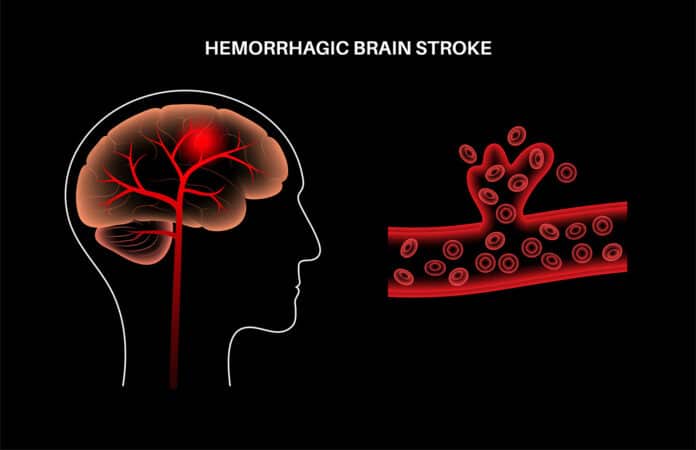Taking blood-thinner medicine can make the risk of a brain bleed higher. A brain bleed is when a blood vessel in the brain bursts, and it’s the most dangerous type of stroke. New research from Yale School of Medicine shows that treating these patients quickly improves their chances of survival.
A brain bleed happens when a blood vessel in the brain breaks and causes bleeding. About 20% of people who have brain bleeds were taking blood thinners like warfarin, rivaroxaban, dabigatran, or apixaban. These medicines mainly treat heart problems like irregular heartbeats and blood clotting disorders.
Kevin Sheth, MD, professor of neurology and neurosurgery at Yale School of Medicine, said, “Oral anticoagulation agents are highly effective and important medications for the population, which individuals appropriately need. As a consequence, it’s important to know the infrequent but serious individual risks. Our health systems must be prepared and ready to move fast when something goes awry.”
In recent years, researchers have developed medicines that can reverse the effects of certain anticoagulants. These include idarucizumab for dabigatran in 2015, and andexanet alfa for rivaroxaban and apixaban in 2018. These treatments are usually given in hospital emergency rooms and can save the lives of people with brain bleeds.
Now, researchers have found that giving these treatments quickly can improve a patient’s chances of surviving a brain bleed. Their findings were published in JAMA Neurology on February 9th.
Sheth, the study’s first author, said, “As these reversal treatments have been coming to the fore, experts have been wondering if earlier timing was better. This paper, for the first time, demonstrates that it is.”
There are two main types of strokes: bleeding (brain hemorrhages) and clotting. A clotting stroke happens when clots block blood flow to the brain. In 1995, the FDA approved the first clot-busting drug for clotting strokes, called tissue-type plasminogen activator (tPA). Soon after, researchers found that giving tPA earlier, within four and a half hours, led to better results.
Sheth said, “This insight changed stroke systems of care. We had to identify those suffering clotting strokes and get them to the hospital quickly. But for brain bleeds. Paradigm has never been there.”
Treating brain hemorrhages sooner leads to better results, according to recent research by Sheth. Sheth worked with the American Heart Association’s stroke registry, which collects data on stroke patients. They looked at people who had a brain hemorrhage while on blood thinners and received treatment to reverse the effects. They found that some patients got the treatment quickly while others had to wait.
The analysis showed that those who got treatment quickly had the best outcomes. Patients treated within an hour of arriving at the emergency room would most likely survive. Sheth says these findings support the idea that time is crucial in treating brain hemorrhages.
The team found that certain factors affected how quickly patients received treatment. For instance, white patients waited less time than Black patients. This finding suggests that improving treatment times for brain hemorrhages could also help reduce health disparities.
The study shows that treating brain hemorrhages quickly is essential for survival. Sheth explains that unlike before when the importance of time wasn’t recognized, clinicians now understand the urgency, similar to clotting strokes. This understanding can lead to efforts to improve treatment speed.
Sheth’s team plans to work with the American Heart Association to investigate why some patients wait longer for treatment. They aim to create initiatives to ensure patients receive care promptly.
Journal reference:
- Kevin N. Sheth, Nicole Solomon, et al., Time to Anticoagulation Reversal and Outcomes After Intracerebral Hemorrhage. JAMA Neurology. DOI: 10.1001/jamaneurol.2024.0221.
